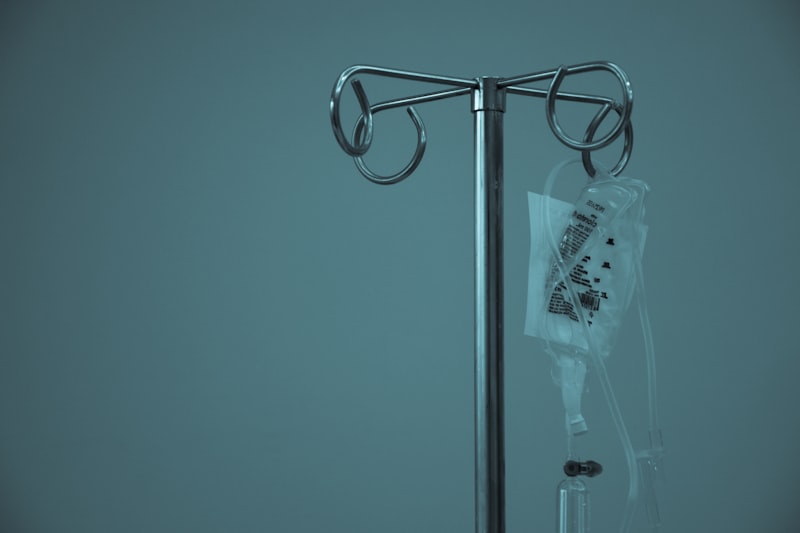When you skimp on sleep, it’s like trying to run a car on an empty tank. Your body’s hormones, including those essential for a healthy sex drive, can get thrown off balance. Men might experience a dip in testosterone levels, which can lead to reduced libido and performance issues. Women, on the other hand, might face fluctuating estrogen levels, affecting arousal and overall sexual satisfaction.
But it’s not just about the hormones. Quality sleep supports mood regulation and stress management. When you’re well-rested, you’re more likely to feel relaxed and in the mood for intimacy. Imagine sleep as the ultimate mood enhancer. A good night’s sleep helps you wake up refreshed, boosting energy levels and mood, making you more inclined to enjoy and seek out sexual activity.
Moreover, sleep enhances your body’s repair processes. Just as muscles rebuild stronger after a workout, your body also uses sleep to repair and rejuvenate. This restoration includes your sexual organs, ensuring they’re functioning at their best.
So next time you’re debating whether to hit the snooze button or indulge in an extra episode of your favorite show, remember that prioritizing sleep might just be the key to unlocking a healthier and more satisfying sex life. After all, who doesn’t want a little extra zing in their step and a little more spark in their romance?
How a Good Night’s Sleep Can Revitalize Your Sex Life: The Science Behind It
Sleep isn’t just about avoiding yawns the next day; it’s about hormonal harmony. During deep sleep, your body releases crucial hormones like testosterone, which plays a big role in sexual desire and performance. Imagine your hormones as an orchestra—when they’re in sync, the music is harmonious. But if one section is off, the whole symphony suffers. Lack of sleep throws this harmony out of whack, leaving you feeling less interested and more fatigued.
Additionally, quality sleep improves mood and reduces stress, two key players in a vibrant sex life. Picture stress as a pesky, uninvited guest at a party—sleep helps show it the door. With stress out of the way, you’re more likely to feel relaxed and ready to connect with your partner, rather than being preoccupied with everyday worries.
Moreover, a good night’s sleep enhances overall physical health, which directly impacts your sexual health. When you’re rested, your body is more agile and responsive, which translates into better performance and greater satisfaction.
So, if you’re looking to boost your intimacy and rekindle that spark, prioritize your sleep. It’s like giving your body a power-up, setting the stage for a more energized and fulfilling sex life. Sleep isn’t just a break from daily life—it’s a key ingredient in a thriving relationship.
Sleep Deprivation and Its Surprising Effect on Libido: What You Need to Know
Imagine your body as a finely tuned machine. When you’re well-rested, everything runs smoothly, including your sexual health. But skimp on sleep, and it’s like trying to drive a sports car with a clogged engine. Your energy levels plummet, mood swings become common, and, yes, your libido takes a nosedive.
Why does this happen? Sleep is crucial for regulating hormones. When you don’t get enough rest, your body produces more cortisol, the stress hormone, which can wreak havoc on your sexual desire. At the same time, the production of sex hormones like testosterone and estrogen can drop, leading to reduced libido. It’s a double whammy of hormonal imbalance that can leave you feeling less interested in sex and more focused on catching up on sleep.
Consider sleep as the ultimate recharge for your body’s battery. Without enough of it, you’re running on empty, and that affects everything, including your intimate life. It’s not just about being tired—it’s about your body not having the right conditions to function at its best. If you’re noticing a dip in your desire or performance, the solution might be simpler than you think: prioritize your sleep.

So next time you’re tempted to binge-watch one more episode or stay up late scrolling through your phone, remember that a good night’s sleep is key to keeping your libido—and your overall well-being—on track.
From Insomnia to Intimacy: Unraveling the Connection Between Sleep and Sexual Wellness
Imagine sleep as the ultimate foundation for a strong, passionate relationship. Just like a house needs a solid base, your body needs restful sleep to function optimally. When you’re sleep-deprived, you’re not just battling tiredness; your libido takes a hit too. That’s because sleep is crucial for hormone regulation, and hormones like testosterone and estrogen, which play a significant role in sexual drive, can be disrupted by poor sleep.
But why does this happen? When you don’t get enough sleep, your body’s stress levels spike. Elevated stress hormones, like cortisol, can dampen your mood and reduce your desire for intimacy. It’s like trying to have a romantic dinner with a constant rainstorm outside—everything just feels off.
Furthermore, sleep quality impacts your overall energy and mood. A good night’s rest rejuvenates your body, making you more likely to feel enthusiastic and present during intimate moments. Conversely, lack of sleep can make you feel irritable and disconnected, creating a barrier to closeness.

So, how can you improve both your sleep and your sexual wellness? Start by establishing a bedtime routine that promotes relaxation. Think of it as setting the stage for a great performance—prepare your body and mind for a restful night’s sleep. A consistent schedule and a calming environment can work wonders, turning those restless nights into opportunities for deeper connections.
The Hidden Link Between Sleep Quality and Sexual Satisfaction: Experts Weigh In
Experts agree that sleep doesn’t just recharge your body; it plays a critical role in sexual well-being. When you’re well-rested, your body releases more testosterone and estrogen, the hormones crucial for sexual drive and pleasure. Picture it like having the right fuel in your car—without it, you won’t get far. Poor sleep, on the other hand, can lead to decreased libido and less satisfying experiences, as fatigue affects mood and physical performance.
But why is this link so strong? During deep sleep, your body undergoes essential repair processes and hormone regulation. Think of it as your body’s nightly tune-up. If this doesn’t happen effectively, it can translate into lower energy levels and reduced sexual desire. The intricate balance of your circadian rhythm, which regulates your sleep-wake cycle, also influences how rested and motivated you feel, directly impacting your intimate moments.
Moreover, stress and anxiety—common culprits of poor sleep—can further strain your sexual satisfaction. Imagine trying to enjoy a romantic dinner with a nagging distraction on your mind; it’s hardly conducive to a great experience. When you tackle sleep issues, you might find your mood improves and your sexual encounters become more fulfilling.
So, the next time you’re struggling with bedroom blues, consider giving your sleep routine a makeover. After all, the path to a better night’s sleep might just be the key to unlocking a more satisfying and passionate relationship.
Frequently Asked Questions
How Can Improving Sleep Enhance My Sexual Health?
Improving sleep can significantly enhance sexual health by boosting libido, increasing energy levels, and improving overall mood. Quality rest helps regulate hormones and reduce stress, which can lead to better sexual performance and satisfaction.
Can Poor Sleep Quality Impact Sexual Performance?
Poor sleep quality can negatively affect sexual performance by reducing energy levels, increasing stress, and disrupting hormonal balance, all of which are crucial for a healthy sexual function.
What Role Does Sleep Play in Hormone Regulation for Sexual Health?
Adequate sleep is crucial for balancing hormones related to sexual health. It helps regulate levels of sex hormones such as testosterone and estrogen, which are essential for libido and reproductive functions. Poor sleep can disrupt these hormones, leading to reduced sexual desire and potential fertility issues.
How Does Sleep Affect Sexual Desire?
Adequate sleep is essential for maintaining sexual desire. Poor sleep can lead to hormonal imbalances and increased stress, both of which may decrease libido. Quality rest supports overall health, including sexual function and desire.
Are There Specific Sleep Disorders That Affect Sexual Function?
Certain sleep disorders, such as sleep apnea and insomnia, can impact sexual function by causing fatigue, hormonal imbalances, and reduced libido. Addressing these disorders may help improve sexual health.


